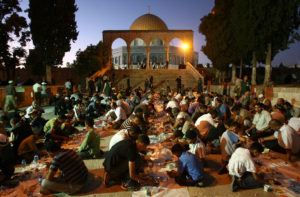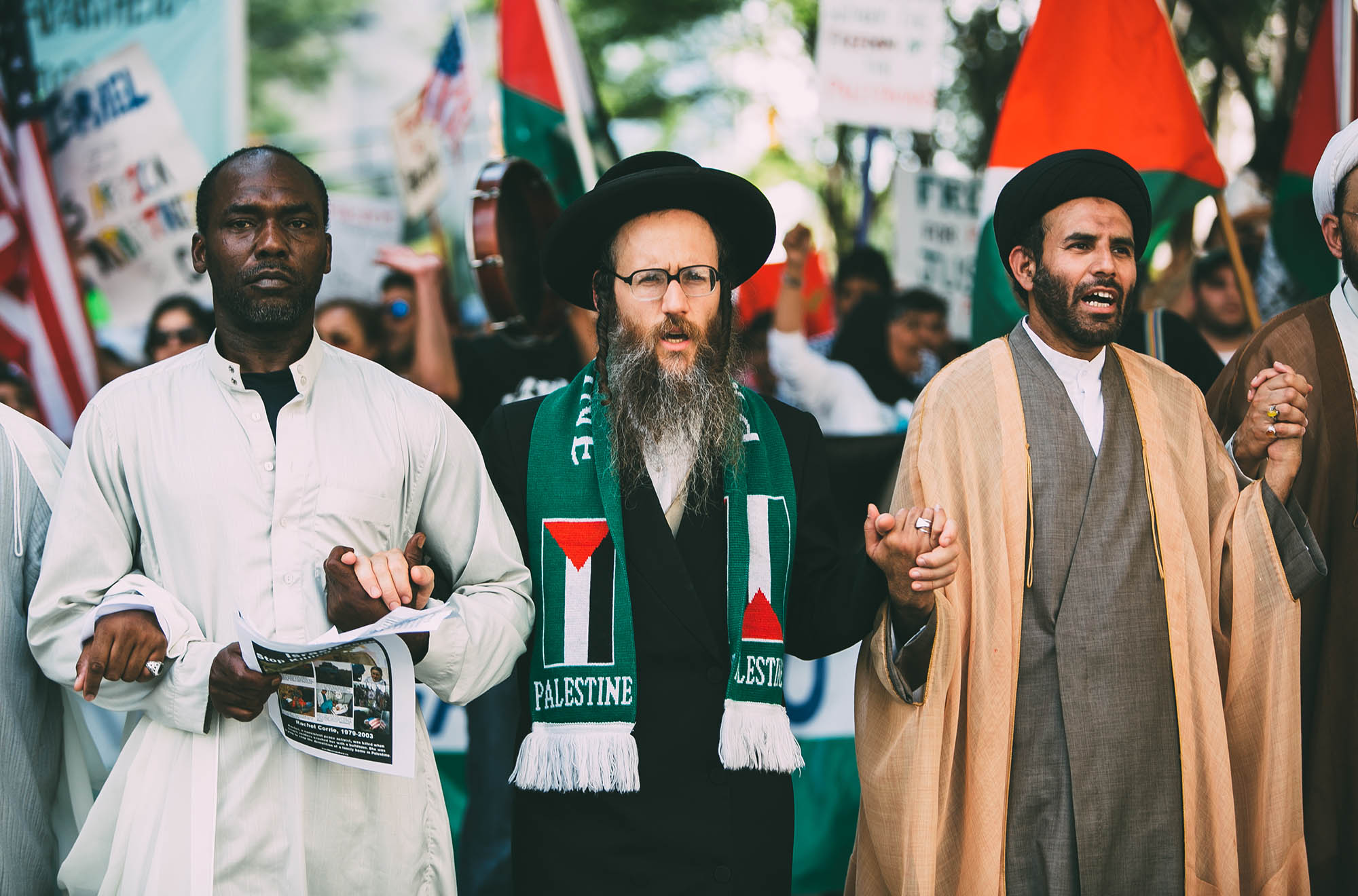Ramadan is the annual Muslim month of fasting. Anyone who has had to go without drinking anything for an entire summer’s day will know something of the struggle Muslims face every Ramadan. The differences are that for Muslims that privation occurs daily for 30 consecutive days, it’s an act of will and requires abstinence from not just drinking dawn to dusk, but also eating, smoking and having sex. This easily makes Ramadan the hardest month in the year. Fortunately, since the Muslim calendar is lunar, Ramadan doesn’t always fall in the summer.[1] But when it does, the extreme heat in countries like Saudi Arabia, Egypt and Indonesia make it especially hard. (Fortunately, those with medical conditions, pregnant women and the elderly are exempt from fasting.)

But Ramadan’s challenges tell only half the story because most Muslims also view this month as the high point in their year. One reason is that it’s the month they believe Muhammad* was shown the Qur’an in (Q 2:185). As well, while fasting during daylight hours taxes their resolve in the extreme, they feel Ramadan’s nighttime feasting more than makes up for it. Its feasts are special times of getting together with family and friends to celebrate God’s goodness. Special foods are enjoyed and the irregularity and the urgency of the meals—you must eat and drink enough to carry you through the long day ahead—make them unique times of focusing on one’s need of God. There is also the wonderful camaraderie involved in an entire community’s undergoing sustained hardship together for a worthy cause. (The closest most non-Muslims in the West come to this is in the camaraderie they feel during the mad rush leading up to Christmas, but the likeness to Ramadan is so remote as to be laughable. A better comparison would be Christians observing Lent, but even there the similarities are very limited.)
Ramadan works somewhat differently depending on one’s situation. Where Muslims are in the minority, observing Ramadan becomes harder, but the solidarity evident between them is sweeter. Where Ramadan’s fast is community- or even nation-wide, it’s the longest period when the whole of society engages in such intense spiritual focus. Either way, Ramadan has many pluses as most people become far more intentional about practicing their faith, doing good deeds and avoiding such behaviors as gossiping and cursing. Everyone—especially those who have slacked off in their practice of daily prayers—gets a spiritual recalibration during this month, as prayers and scripture readings are more pervasive and people turn more toward God. Caring for the less fortunate is a major Ramadan emphasis also.
But Ramadan’s communal aspect can have minuses too. To begin, the partial reversal of night and day—eating before dawn, for example—means that over the entire month sleep loss can easily accumulate, fraying people’s nerves and so adding to the challenge. This may also reduce one’s work output, increasing the financial burdens of some. Then too, minorities in Muslim societies often feel pressured externally to conform to Ramadan’s rules. While it may seem a fairly obvious demand of social etiquette that no one eat or drink in public (i.e. in front of fasting Muslims), minority groups don’t always see it that way, especially groups in tension with Muslim neighbors. And this can lead to intercommunal conflict. Finally, Ramadan’s intensity can push unbalanced individuals to commit rash acts—as tragically happened in Orlando recently. But such individuals really are a tiny minority: the great majority of Muslims are appalled to see such carnage carried out in the name of Islam. To them, Ramadan is simply about striving to become a better person, live a more God-centered life and contribute more positively to society. This point unfortunately doesn’t often come through in the Western news media, however.
Christians especially ought to empathize with their Muslim brothers and sisters during Ramadan and appreciate that they use their fasting to help them remember that we don’t just exist on a physical level, but are spiritual beings too. As both Moses and Jesus said, we don’t live by bread alone, but by every word that God speaks as well (Deut 8:3, Matt 4:4). All Muslims long to be rightly related to God and the Qur’an commands them to observe Ramadan in order to become righteous (Q 2:183).
For a useful insider’s view of Ramadan, read “10 Things I Wish Everyone Knew About Ramadan” by Marwa Abdelghani, a community outreach fellow of the Muslim Public Affairs Council. While Marwa writes specifically for fellow Muslims, much of what she says will also help non-Muslims understand Ramadan better.
*Peace Be Upon His Descendants. Out of regard for my Muslim readers, I follow each mention of their prophet’s name with this prayer for peace.
[1] The Muslim lunar calendar is what accounts for Ramadan’s shift on the Western calendar by about 5 days each year.



